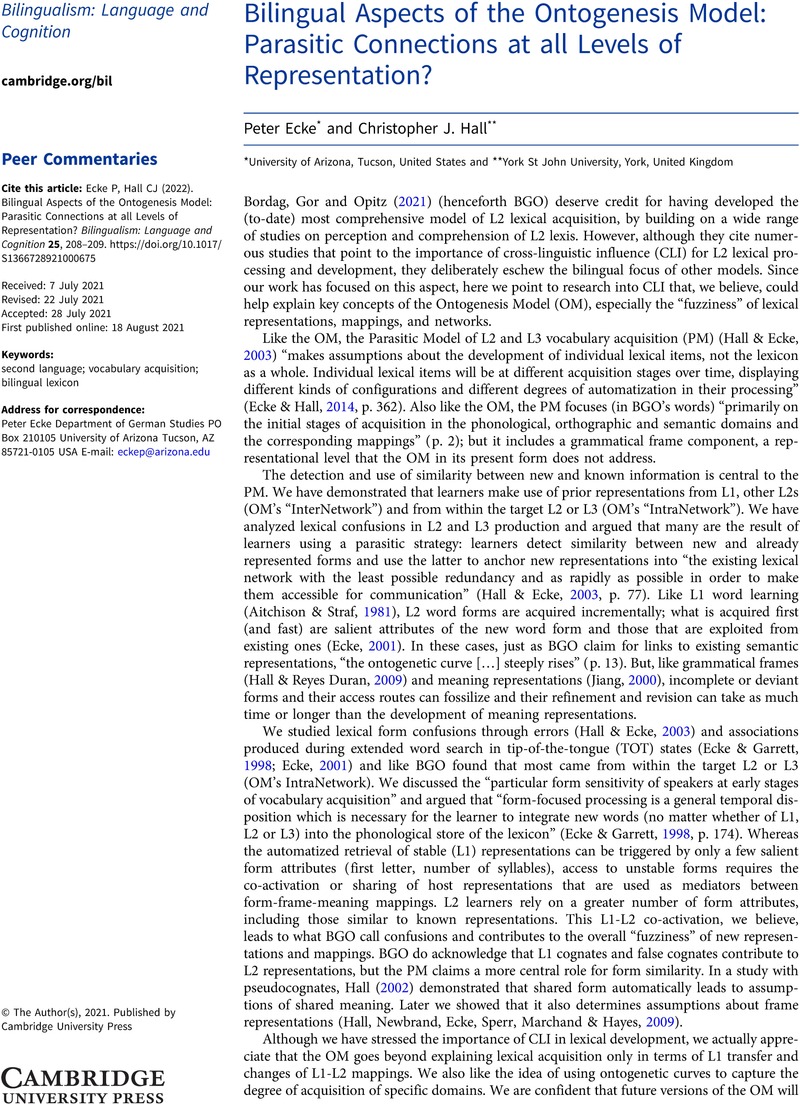Crossref Citations
This article has been cited by the following publications. This list is generated based on data provided by Crossref.
Bordag, Denisa
Gor, Kira
and
Opitz, Andreas
2022.
Refining key concepts of the Ontogenesis Model of the L2 lexical representation.
Bilingualism: Language and Cognition,
Vol. 25,
Issue. 2,
p.
236.






